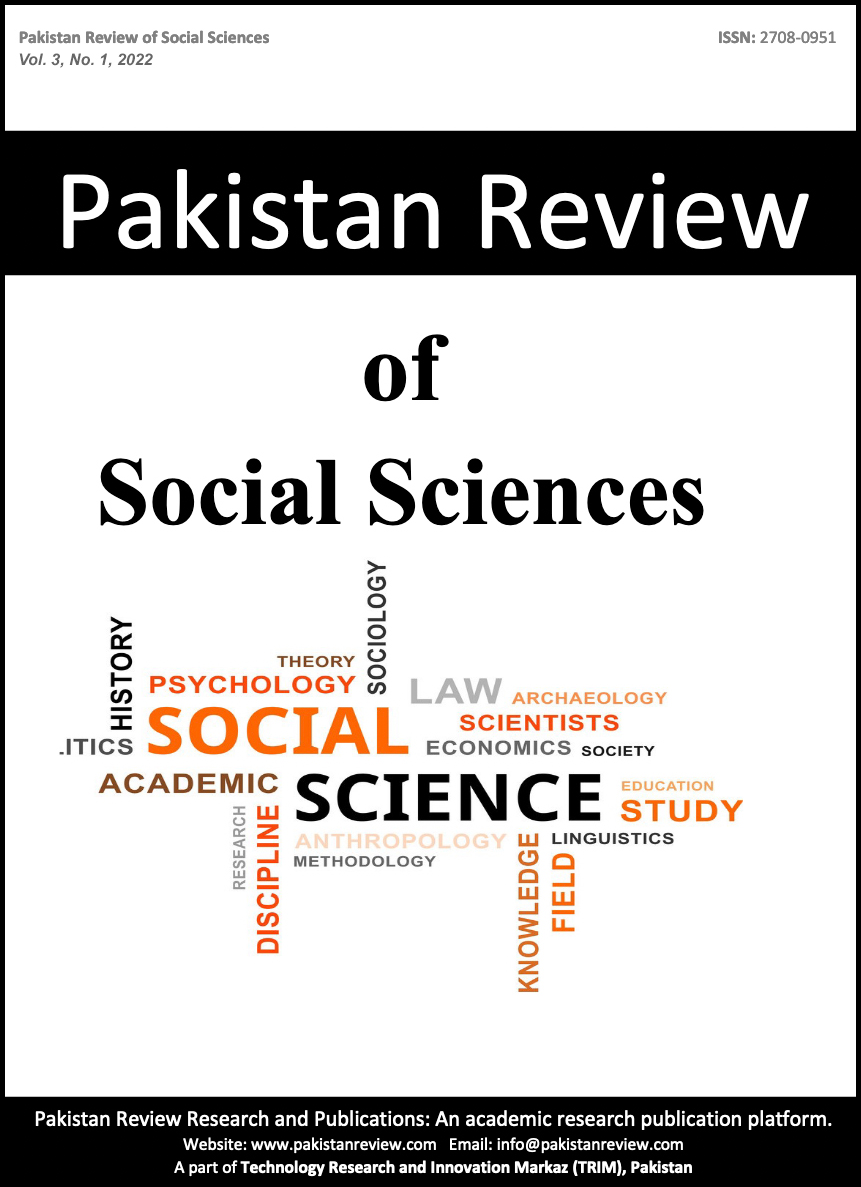Women Economic Empowerment and Employment Discrimination
(Quality education a factor to boost women’s economic empowerment and to reduce employment discrimination)
Abstract
Quality education for deciding women economic empowerment is an idea which is need of the day particularly considering the circumstance of under developed nations like Pakistan. Taking women as fundamental human recourse they can perform much better in the development of the nation. In Pakistan, women constitute a bigger segment of population, which can be taken up as a crucial component in its development. Current study aims to evaluate women economic empowerment and employment discrimination. The study focuses on quality education as a factor to boost women’s economic empowerment and to reduce employment discrimination. In contemporary world women's empowerment has been a very important issue. Women empowerment comprises of knowing their rights, able to have a significant control over resources and lives both at inside and outside of their homes as well as the ability to bring an impactful change in the society. Women economic empowerment also includes giving woman her rights in the economy, equal opportunity to access education, health etc. life’s basic facilities, equal opportunity for recreation and entertainment and equal opportunity to take decision. The current study showed that there is a significant negative correlation between women economic empowerment and employment discrimination and there is also significant negative correlation between quality education and employment discrimination while there is a significant positive correlation between quality education and women’s economic empowerment.
Downloads
Published
Issue
Section
License
Copyright (c) 2020 Benish Ibrahim

This work is licensed under a Creative Commons Attribution 4.0 International License.
Submission declaration
Authors retain the copyright to their work and grant the Pakistan Review of Social Sciences (PRSS) the right of first publication under a Creative Commons Attribution 4.0 International (CC BY 4.0) license. This license allows others to share, adapt, and reuse the work for any purpose, including commercial use, as long as appropriate credit is given to the original authors and the journal.
By submitting a manuscript, authors confirm that the work has not been published previously (except as an abstract, lecture, or academic thesis), is not under review elsewhere, and has been approved by all authors and relevant authorities. Once accepted, the article will be openly accessible under the CC BY 4.0 license, ensuring wide dissemination and reuse with proper attribution.






